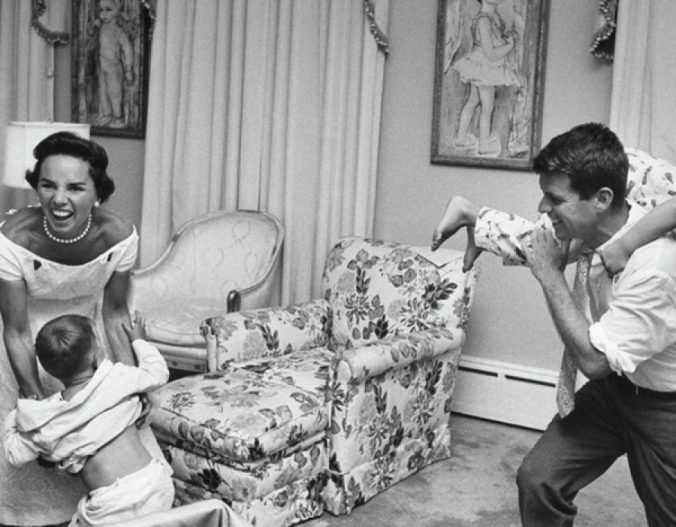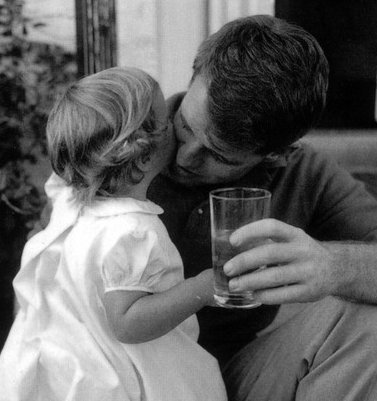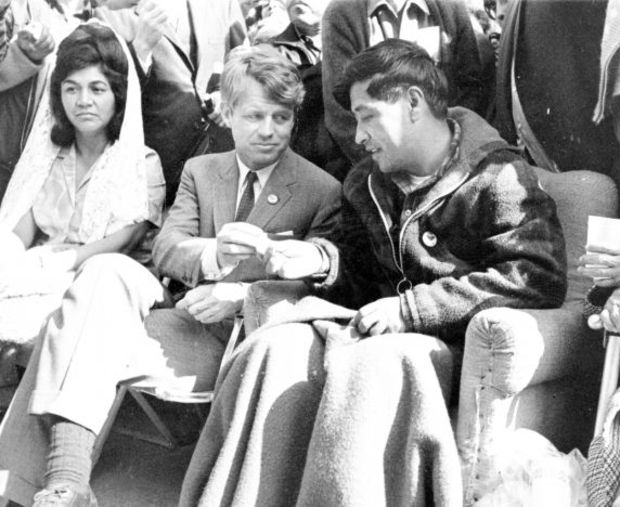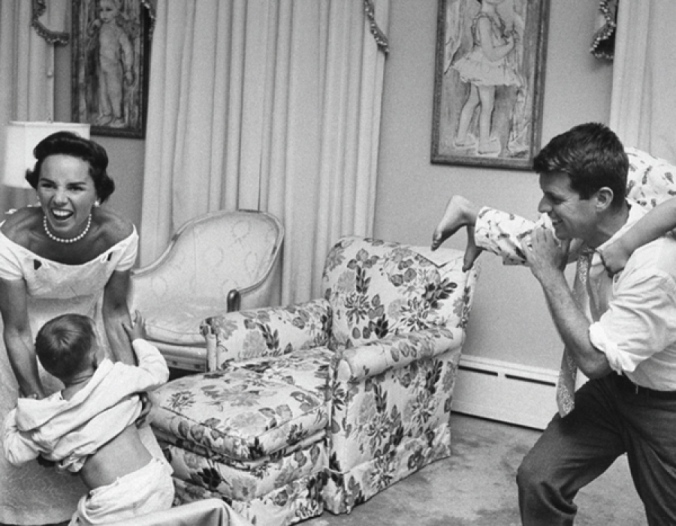today, on the fiftieth anniversary of robert kennedy’s death, i participated in an active shooter training at my office. shots from an airsoft gun were fired in the building. those of us in back were warned by a page over the intercom as the fake gunman fired another round. the speakers broadcast shouting voices and pounding feet all over the building. i crawled into a cabinet, next to plastic storage bins full of tempera paints, and held my breath in the dark.
is everybody okay?
the training scenario lasted less than one minute. as i hugged my knees and felt the dull, chalky smell of paint tickling at the fringes of my consciousness, an hour’s worth of thoughts raced through my mind. i considered the stiffness of my knees, the volume of my breath, the courage it would take to squirt paint in another person’s eyes…and then i heard bobby kennedy’s last words echoing in the hallway.
is everybody okay?
the drill had ended. i thought of kennedy’s dying altruism, as i, myself, emerged from a cupboard alone.
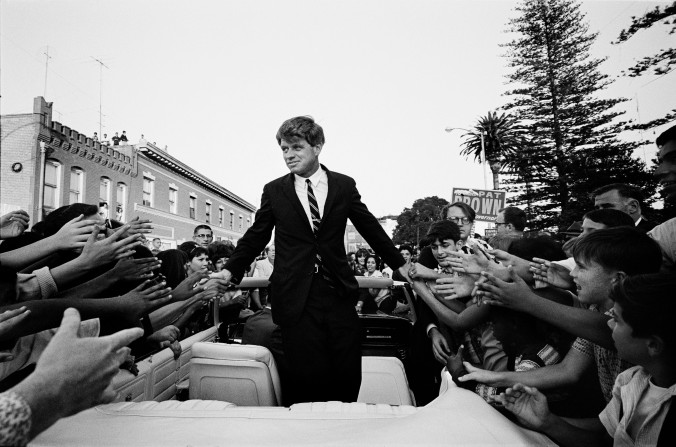
have you ever filled a metal spoon with diesel 153 proof liquor and set it on fire?
once, as i was driving home from a bar, i attempted to conjure a scenario that might convey to my friend the feelings i experience when i study bobby kennedy’s life. it was a very physical and visceral effort–my heart beat faster, my eyes narrowed, and my brow furrowed as i chewed my bottom lip. i held my hands out, palms towards the sky. they were empty, but in them i felt the weight of the challenge.
after i graduated from college, i had a roommate who liked to set things on fire with liquor and a zippo lighter. i remember watching him one night. he poured the spirits into a metal spoon, slowly, carefully, so as not to spill on our already tarnished carpet. eager anticipation twisted in my stomach as the lighter approached the pool of liquid, and then came the whoosh of ignition. my face lit up with glee, and i clapped my hands. adrenaline surged through my veins.
then, in the blink of an eye, the alcohol had burned away. the flame sputtered and went out. and we were just two morons sitting in a dark living room, trying to remember what it was all about.
have you ever started a new show without realizing there was only one season?
not everyone plays with fire, but almost everyone watches netflix. waiting a week for a new episode to come out has almost become a thing of the past, but all this binge-watching can catch us off guard.
a few months ago, i started to watch a new show. really…”watch” is too tame a word. i was devouring it–at a rate of five or six episodes a night. the introduction was slow, as i got to know the characters, discovered my favorites, learned their demons and their quirks. but by the end of the first story arc, i had fallen, i was hooked. i planned my day around how many episodes i could fit in around errands. i made bargains with myself to squeeze in just one more–taking out the trash could wait. when i wasn’t watching, i was reading character backstories online. the soundtrack echoed through my dreams. the story had thoroughly consumed my life, and then…
…then it was over.
four days after my binge began, that was it. suddenly, all my hopes and predictions for future plot points were moot; all the hours i had booked for binge-watching were now open. i would never know if jared would marry tara or greg. lucy’s lovechild would never be born. terry would never get that promotion at the magazine. if izzy was convicted of murder, it could only happen in the courtroom of my imagination.*
it all just ends, and you’re left with nothing in the dark but a bunch of loose ends.
(*this is not a real show)
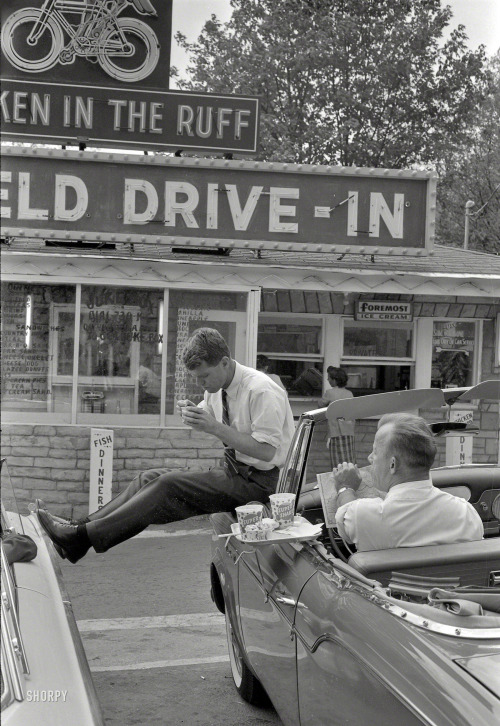
oh god. not again.
men do not often figure in my discussions of history, but today is different. as i stewed in my selfish shame after our shooting drill, i could not shake the magnitude of this anniversary. searching for images to accompany this post, i again felt the weight of his death heavy on our nation.
i wanted a picture that showed his compassion and verve, and so i scanned the results for images of him with his family or eating ice cream on the campaign trail. (he liked chocolate.) these pictures exist. there are dozens of them: bobby getting married, bobby riding on the back of a tricycle, bobby’s hands outstretched towards the masses gathered to see him. there is so much feeling packed into those photographs that your heart swells. there is magic in them, and for a moment, you forget he is gone.
kennedy was hard and masculine, but he was intuitive and emotional at his core. his ability to escape his privilege and empathize–whether with striking farmworkers or starving children in mississippi–was off the charts. in just a few short months on the campaign trail, the shy, skulking boy in the background found his voice. it rang loud and true and unafraid, calling for unity in change, in hope, in a new day dawning.
but you cannot escape it.
ethel’s scream. her palm thrust towards the camera. that famous image of him, laid out on the floor, his own blood seeping into his shirt as juan romero–a stranger–presses a rosary into his palm and all that life…slips away. that image cuts in everywhere. between every photo of his life, his death lands a heavy punctuation mark to his unshakable energy.
that image shows up, over and over, and the bold, black headlines that ran on newspapers across the globe shoot through your heart like an arrow.
oh god. not again.
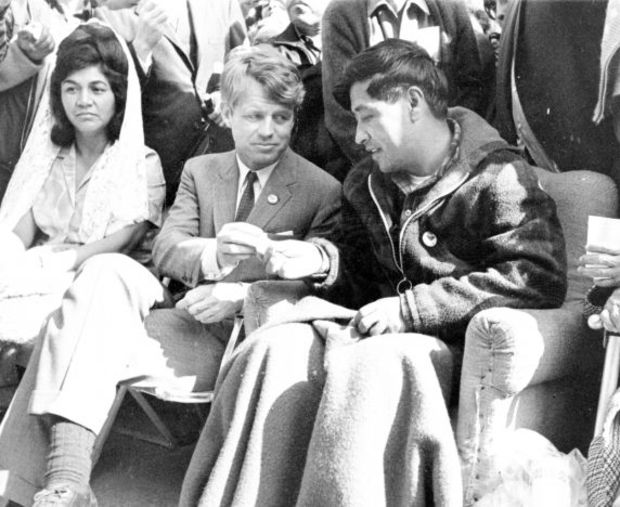
bobby kennedy is a giant, but he is a giant what if. would he have won the democratic nomination in 1968? would he have won the election? maybe not. but his sudden death allows us to speculate, allows us to imagine the ending to his story cut all too short. he was a man of contradictions, who was constantly growing, constantly feeling. he was always putting his family over himself–eventually he would strive to do the same for his countrymen.
And even in our sleep, pain, which cannot forget, falls drop by drop upon the heart, until in our own despair, against our will, comes wisdom through the awful grace of God.
bobby kennedy was a man who felt too deeply and fell too soon, and he left us with so much still to do. his legacy is a question mark and the answer is up to us. civil rights, workers’ rights, compassion towards our fellow man–in a world inundated with wealth and violence, have we lost sight of what truly matters? today, i hid in a cupboard to escape a fake gunman. someday, that gunman may be real. when i think of our country stagnating in fear and selfishness, i wonder about his last words.
“is everybody okay?” he asked as his life drained away.
is everybody okay?
i’m not sure, bob.
but i hope so.
